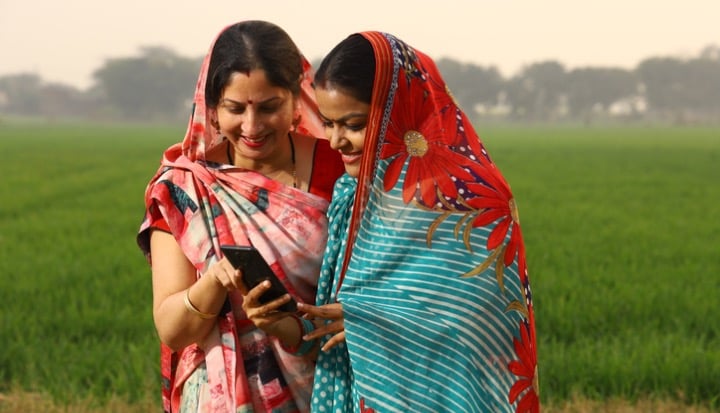When was the last time you received your wage in cash? Have you ever received a pile of bills and coins, taken public transportation, and wondered where in your house to hide them to keep them safe?
There is a chance you have never experienced this. But in many countries, this is an everyday reality. Take Jordan, for example. An estimated two-thirds of garment workers, mostly women, still receive their wages in cash every month.
There lies an opportunity: Shifting payments from cash to digital has the potential to improve the lives of people on low incomes, particularly women, but also bring tangible gains to companies. From garment factories to telecom companies, there are many things your firm can do to improve women’s lives through digitization.
Benefits for women
Around 1.5 billion adults in low- and middle-income countries opened their first account to receive digital private sector wage payments from 2017 to 2021. Approximately 650 million were women. Digital wage payments help factory workers boost their savings and improve their ability to manage financial emergencies.
In Kenya, mobile money services among women-headed households have been found to increase savings by at least 20% and reduce extreme poverty by 22%. Digital financial services help the most vulnerable populations to smooth cash flows and build resilience in response to shocks, including through digital payments, savings, insurance, and social protections.
Benefits for businesses
Digitizing payments is not only good for women workers; it is good for business, too. Digital payments reduce costs, as they provide greater efficiency and speed in wage disbursement and improve transparency and security by enhancing wage traceability and accountability. For example, in Jordan, disbursing wages in cash can cost garment factories up to US$ 1,000 per month, equivalent to the monthly wages of four workers. When three Jordanian garment companies (employing 12 percent of garment workers in Jordan) paid wages digitally, the administrative time to disburse wages dropped by 66 percent for deposits made directly to bank accounts and by 70 percent for payments made directly to e-wallets.
Women-centered offerings and communication
Designing and marketing financial products based on the needs and preferences of women can increase adoption and usage. This includes understanding women’s different realities to improve product design. It is essential to engage directly with the users experiencing the issues to understand these matters from their perspective and conduct an in-depth problem analysis through a gender lens. Financial service providers should hire female staff and bank agents, and products and services need to adapt to women’s evolving needs and serve them effectively throughout their lifecycles.
Sex-disaggregated data
If financial institutions and telecoms collect sex-disaggregated data on their customers and operations, policymakers would be better able to identify the impediments to women’s financial inclusion and address those barriers. This includes basic information like who owns the account, how often it’s used, and the number of transactions. It also includes data on customer loyalty and satisfaction, as well as data on how the account is used and the volume of transactions.
Expanding the benefits of digitization to women merchants
If workers are confident that they can use e-wallets widely, at no additional cost, some would consider them “better than cash” and use them more for day-to-day purchases. This would reduce costs and decrease the usage of ATMs to get cash to purchase goods or pay for services. Better Than Cash Alliance government members have been taking the lead globally, working with public and private sector players to incentivize and accelerate the digitization of merchant payments (especially women) in their economies.
A seat at the table for women
Inclusive and accountable governance means that, among other things, women have a voice in leadership roles that influence and guide the design and adoption of digital payment products, policies, and programs. This is achieved, in particular, by including key stakeholder groups and the voices of marginalized women. For example, India’s leading trade union for self-employed women (SEWA) has committed to increasing access to and usage of responsible digital payments. This will benefit its membership of rural and urban low-income women working in the informal sector.
The International Labour Organization (ILO) has now established the Global Centre on Digital Wages for Decent Work to stimulate decent work via a transition to digital wage payments through peer sharing and evidence-based advocacy.
We invite all businesses to contribute to the SDGs and economic development by following our ten-point call to action to prioritize women’s financial inclusion. ‘Reaching Financial Equality‘ is a joint initiative by the United Nations-based Better Than Cash Alliance, United Nations Capital Development Fund (UNCDF), United Nations Secretary-General’s Special Advocate for Inclusive Finance for Development (UNSGSA), UN Women, Women’s World Banking, World Food Programme (WFP), The Generation Equality Forum, and the World Bank.
Authors:
Gisela Davico, Global Head of Gender & LAC Regional Lead- UN based Better than Cash Alliance
Tidhar Wald, Managing Director, a.i., Better Than Cash Alliance @ United Nations
Diego Mendiburu, Global Digital Communications Specialist Global Digital Communications Specialist, Better than Cash Alliance










